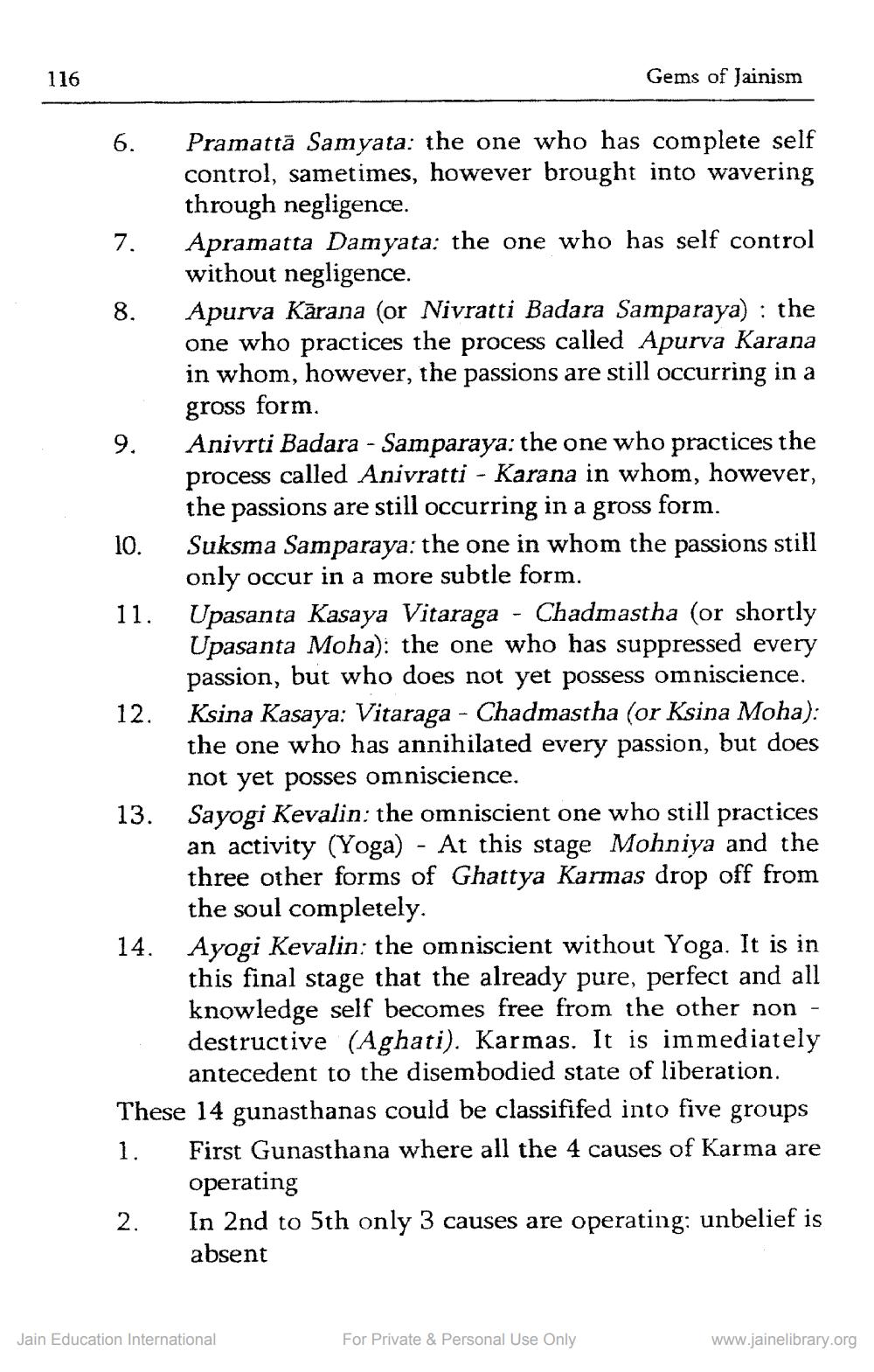________________
116
Gems of Jainism
6.
i
o
Pramattā Samyata: the one who has complete self control, sametimes, however brought into wavering through negligence. Apramatta Damyata: the one who has self control without negligence. Apurva Kārana (or Nivratti Badara Samparaya) : the one who practices the process called Apurva Karana in whom, however, the passions are still occurring in a gross form. Anivrti Badara - Samparaya: the one who practices the process called Anivratti - Karana in whom, however,
the passions are still occurring in a gross form. 10. Suksma Samparaya: the one in whom the passions still
only occur in a more subtle form. 11. Upasanta Kasaya Vitaraga - Chadmastha (or shortly
Upasanta Moha): the one who has suppressed every passion, but who does not yet possess omniscience. Ksina Kasaya: Vitaraga - Chadmastha (or Ksina Moha): the one who has annihilated every passion, but does not yet posses omniscience. Sayogi Kevalin: the omniscient one who still practices an activity (Yoga) - At this stage Mohniya and the three other forms of Ghattya Karmas drop off from
the soul completely. 14. Ayogi Kevalin: the omniscient without Yoga. It is in
this final stage that the already pure, perfect and all knowledge self becomes free from the other nondestructive (Aghati). Karmas. It is immediately
antecedent to the disembodied state of liberation. These 14 gunasthanas could be classififed into five groups 1. First Gunasthana where all the 4 causes of Karma are
operating 2. In 2nd to 5th only 3 causes are operating: unbelief is
absent
Jain Education International
For Private & Personal Use Only
www.jainelibrary.org




